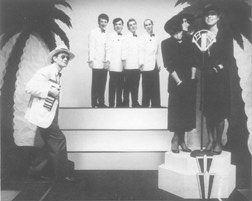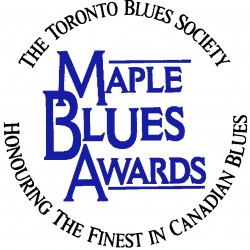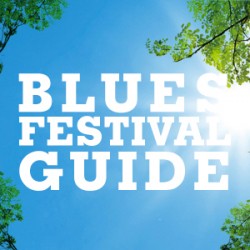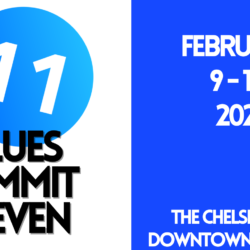Scott Cushnie – A Modern Primitive?
We’re fast approaching 1997 – high time that Scott “Professor Piano” Cushnie had a record under his own name. After all, he’s been on the local scene since 1959, hopping most ably among musical styles: boogie woogie, blues, R&B, early jazz, pre-war retropop, rockabilly, folk-rock, skypunchin’ stadium rock – you name it.
Two Pianos, No Waiting, the brand new CD by Scott Cushnie with Doug Riley and Joan Besen, sticks pretty much to the first handful of categories. In other words, the really old stuff, with the emphasis on boogie woogie. Here, the blues are pre-war classics like W.C. Handy‘s “St. Louis Blues”, Little Brother Montgomery‘s “Vicksburg Blues”, Louis Jordan‘s “Early In The Morning”, Charles Davenport‘s “Cow Cow Blues” and Jimmy Yancey‘s “Yancey Special”.
Many of Scott’s seven originals on Two Pianos, No Waiting (and Joan Besen’s one) also seem written for a different age. Not that this should surprise, as the man’s music has tended that way for an awfully long time. In fact, a couple of the Scott’s own songs on the new CD first appeared more than 20 years ago: “Gemini Rag” was recorded with Boogus in 1974, and “Boogie The Night Away” was recorded the following year with blues guitarist Mike McKenna and Diamondback.

The Suedes at the CHUM Hi-Fi Club in 1959: Peter Deremigis (clapping), Robbie Robertson, CHUM DJ Al Boliska, Peter Traynor, Ronnie Hawkins and Scott Cushnie (wearing glasses).
1974 may seem like a long time ago (jeez, it was a long time ago!), but Scott’s musical history goes back at least another 15 years before that. On the back of the October 5, 1959 CHUM Chart is a small but historic photo: a young Rompin’ Ronnie Hawkins guesting with Scott and his group, The Suedes, at the CHUM Hi-Fi Club on Merton Street. Among the other Suedes, all identifiable in the photo, are Pete Traynor (the amps guy) and none other than guitar great Robbie Robertson.
Just about everybody knows that Ronnie Hawkins soon hired Robbie Robertson into his Hawks, but few know that he hired (and fired) Scott Cushnie first. Fewer still are aware that the two Robertson “originals” recorded by Hawkins on his early “Mr Dynamo” album were really songs from the Suedes repertoire, both at least partly written by Scott! Perhaps surprisingly, Scott remains understanding: “I wasn’t around to sign the songs over to the record company, but Robbie was. It’s not as if he got any money for them.”
Whatever, Scott’s next couple of years were spent travelling up and down the eastern half of North America – first with Hawkins and then with other touring rockers with names like Jerry Warren and the Tremblers and Barry Darvell and the Blazers. Scott may have come home with no money or recognition, but he still has from those days a most amazing repertoire of stories about playing in the south to a lurid array of rednecks and racists. A sampling can be found in “Ronnie Hawkins: Last of The Good Ol’ Boys”. (While on the subject of stories, Scott also has some great ones from his days in the late ’70s with heavy metal heroes, Aerosmith; the group’s producer, Jack Douglas, had Scott tour with the group and play on “Toys In The Attic” because they’d played together years earlier in a couple of other bands.
Back to the mid ’60s: by 1964 Scott returned to the Hawkins fold, this time in an administrative capacity – running Ronnie’s new Hawk recording, publishing and management `empire’. His first productions were both blues (however pale): “I Got My Mojo Working” by Ronnie Hawkins and “Fannie Mae” by Robbie Lane. Both singers were backed by Lane’s Disciples with Domenic Troiano on guitar. Troiano’s searing Toronto-style blues work also powered Scott’s first recorded vocal, “Betty Jo” by Buddy Carlton and the Strato-Tones. However, itching to get back into playing live, Scott then hooked up with one of Hawk’s acts – the Vendettas. The group’s drummer, Bob Yeomans, has been in and out of groups with Scott for a full thirty years now, and plays on eight cuts on the new CD. (Al Cross appears on another two.)
The tail end of the ’60s found our man with Ronnie Hawkins yet again – in a band of Hawks that included King Biscuit Boy, guitarist John Till (later with Janis Joplin) and drummer Larry Atamanuik (later of Crowbar and Sea Train). Scott appears on much of Hawkins’ first Cotillion LP (recorded in Muscle Shoals), which features some spine-chilling harmonica / slide interplay between Biscuit and Duane Allman on “Matchbox”, “Down in the Alley” and “Who Do You Love”.
As electrifying as it was, and is, that sort of material was no longer what Scott really wanted to do. While there were lots of rock bands through the ’70s – Tundra, Jericho, Diamondback, Malcolm Tomlinson – there was also a growing focus on roots and old-timey music: blues and boogie with Boogus; a stint in the house band at the Le Coq D’Or Tavern on Yonge Street, backing international headliners; an aborted direct-to-disc album project featuring nothing but Fats Waller songs.
Most notably, at the end of the decade and all through the ’80s and beyond, there was the wonderful Canadian Aces: Scott, bassist Terry Wilkins, guitarist Mitch Lewis, drummer Bucky Berger and singers Eileen and Marian Tobin. Though an ’80s group, the Aces always sounded – and looked for that matter – lost in the ’20s and ’30s. Their only LP was entitled Modern Primitive, which sounds pretty accurate to me considering the music that these relative youngsters were playing: old show tunes and pop songs, plus the occasional original that always managed to fit perfectly.
In other words, something that on paper may look very much like the new CD. But where the Canadian Aces were recreating old music with polish and pizzazz, the performances on Two Pianos, No Waiting come across as more personal and timeless. Of the 18 songs in total, six are duets with Doug “Doctor Music” Riley – one of Toronto’s very finest musicians, of any style – and eight are duets with Joan Besen of Prairie Oyster. Both busy people, “Doug and Joan did it `cause they both love boogie woogie”, says Scott.
We should thank our lucky stars that they did. But most of all we should thank the remarkable, and remarkably versatile, Scott Cushnie for delivering this gem. “Two Pianos, No Waiting” – something to be rushed right out for
– Bill Munson











